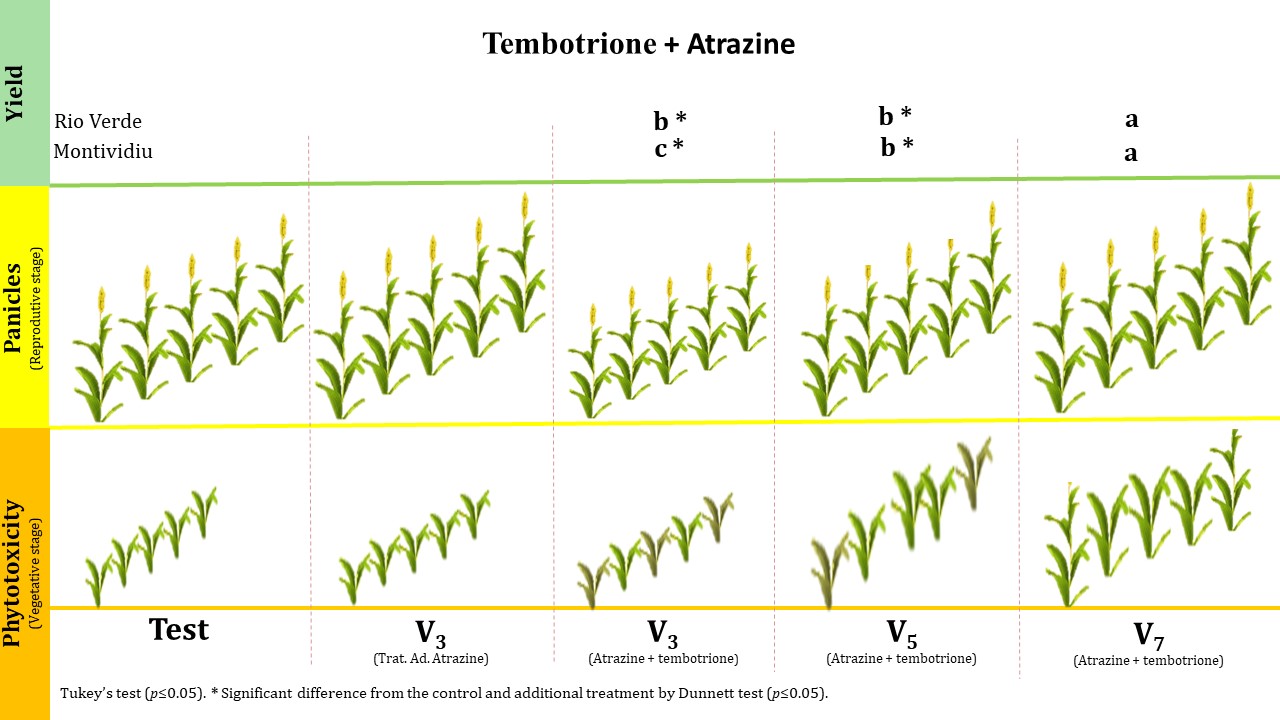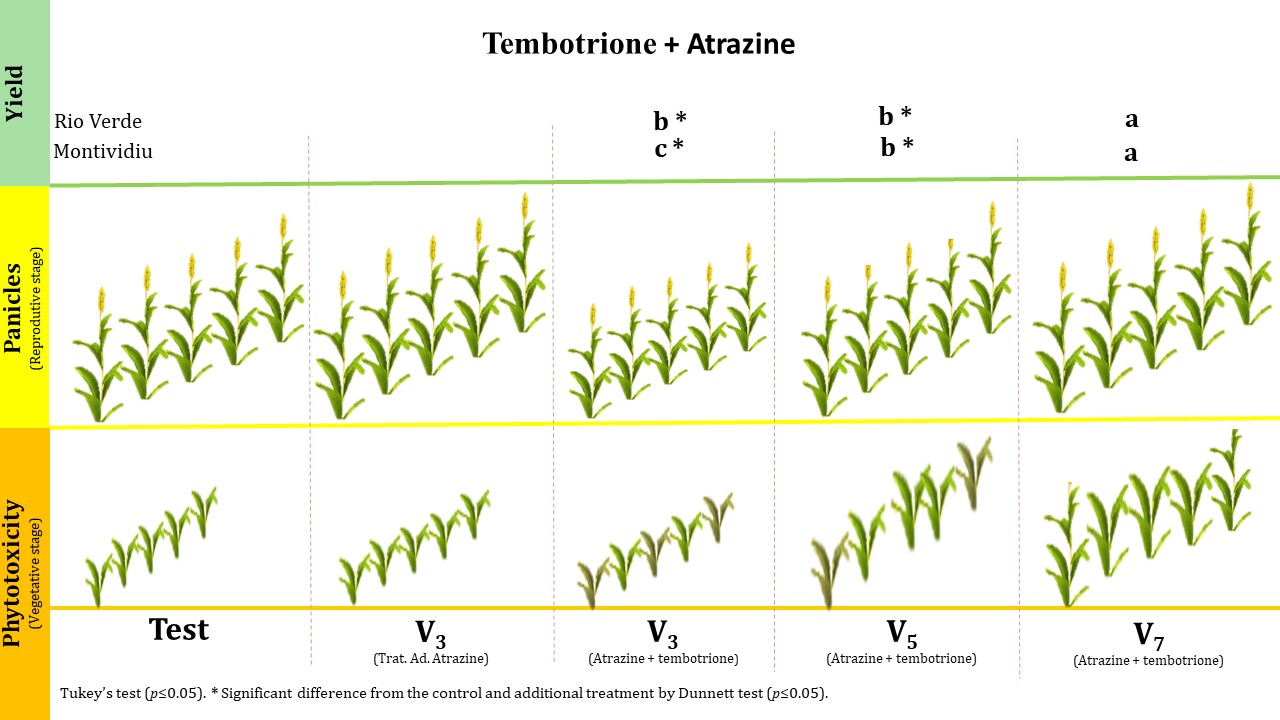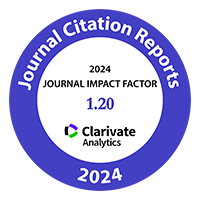Application stages and doses of tembotrione herbicide in grain sorghum (Sorghum bicolor) crop
DOI:
https://doi.org/10.48162/rev.39.126Palabras clave:
atrazine, malezas, postemergencia, productividad, Sorghum bicolorResumen

The herbicide tembotrione is effective against grassy weeds constituting an important tool in sorghum crops. However, in Brazil, this herbicide is only registered for corn. This study aimed to evaluate the selectiveness of tembotrione combined with atrazine at different doses and developmental stages of grain sorghum. Two experiments were conducted in Rio Verde and Montividiu, state of Goiás, Brazil, in 2018. A randomized block design with four replications, in a 3x2+1+1 factorial arrangement, tested three developmental stages (V3, V5 and V7), two doses of tembotrione (37.8 and 75.6 g ha-1) combined with the herbicide atrazine (1,000 g ha-1), an additional treatment only with atrazine at V3 and a control, free of herbicide. Evident phytotoxicity was observed with the combination of tembotrione and atrazine at V3 and V5 stages. Symptoms included reductions in plant height, sorghum stem diameter, panicle length, and cumulative dry mass of sorghum plant shoots. However, there was no influence on thousand grains mass, regardless of application stages. Tembotrione at 37.8 g ha-1 combined with atrazine at 1,000 g ha-1 was selective for grain sorghum when applied at V7, without affecting grain yield.
Highlights:
- Phytotoxicity symptoms of tembotrione and atrazine are more noticeable at V3 stage, beyond reducing the plant height and stem diameter.
- Application of tembotrione and atrazine at V3 and V5 stages reduces the accumulation of shoot dry mass.
- Spraying of tembotrione (37.8 g ha-1) and atrazine in V7 stage is not reduce the yield of BRS 330 grain sorghum hybrid.
Descargas

Descargas
Publicado
Cómo citar
Número
Sección
Licencia
Derechos de autor 2018 Revista de la Facultad de Ciencias Agrarias UNCuyo

Esta obra está bajo una licencia internacional Creative Commons Reconocimiento-NoComercial-CompartirIgual 3.0.
Aquellos autores/as que tengan publicaciones con esta revista, aceptan las Políticas Editoriales.











.jpg)




